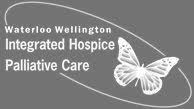Current Resources on Cannabinoids and Older Adults
Since the legalization of cannabinoids, the older adult population has shown growth in their use for both medical and recreational purposes. Healthcare providers should be aware of the evolving evidence and guidelines to safely and effectively support older people who currently use or are considering use of cannabinoids, for any purpose.
There remains limited, low-quality evidence to support the medical use of cannabinoids, but this body of evidence will continue to grow, as we learn more. Cannabinoids are not currently considered first- or second-line therapies for any medical condition nor in palliative care.
There is limited evidence to support the medical use of cannabinoids in the following conditions, once typical therapies have been adequately trialed:
- neuropathic pain and pain in advanced, life-limiting illness
- nausea and vomiting associated with chemotherapy
- spasticity related to multiple sclerosis and spinal cord injury (CFPC, 2021)
Healthcare providers must ensure that they have up-to-date knowledge, skill and judgement to support older adults, and their loved ones, in providing health teaching and safe medical cannabis use, according to their professional role.
Deepen your Knowledge
- Canadian Centre on Substance Use and Addiction, 2020
A Guide to Cannabis for Older Adults - Canadian Coalition for Seniors’ Mental Health & Canadian Academy of Geriatric Psychiatry, 2019
Canadian Guidelines on Cannabis Use Disorder Among Older Adults - Canadian Nurses Protective Society, 2018
Access to Cannabis for Medical Purposes: What Every Nurse Should Know - College of Family Physicians of Canada (CFPC), 2021
CFPC Guidance in Cannabis Within Primary Care - College of Nurses of Ontario
Medical Cannabis - Health Canada, 2018
Cannabis and the Cannabinoids: Information for Health Care Professionals - Active Aging Canada, 2021
Be Wise – Cannabis and Older Adults
In partnership with Baycrest, the Canadian Coalition for Seniors’ Mental Health has developed a comprehensive set of eLearning modules on
Cannabis and Older Adults suitable for a variety of healthcare roles.
Download Tip of the Month
PDF – Current Resources on Cannabinoids and Older Adults




